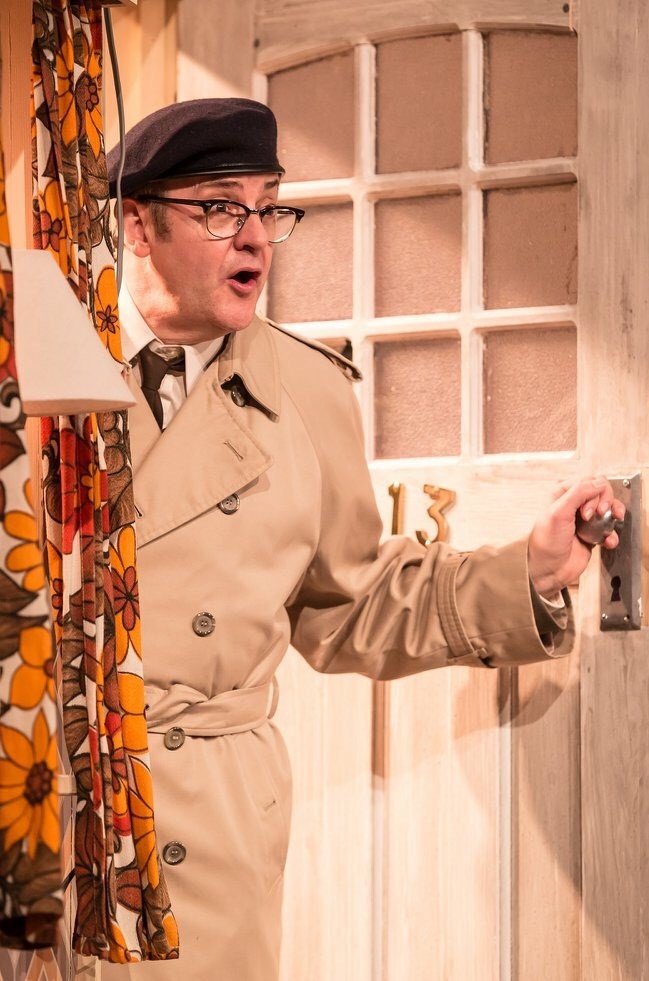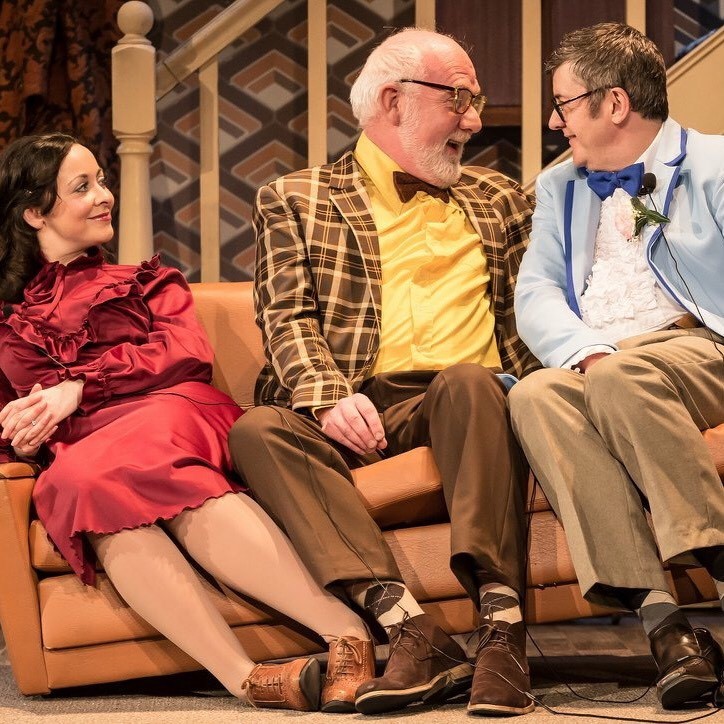
Raymond Allen is a British television writer and playwright best known for creating the 1970s BBC sitcom Some Mothers Do ‘Ave ‘Em, which has recently been adapted for the stage by Guy Unsworth.
Can you tell us about your original idea for Some Mothers Do ‘Ave ‘Em – where did the inspiration come from?
I started sending scripts to television companies when I was fifteen, and by the time I was thirty I still hadn’t sold one. Then I read an article by a television actress complaining about the lack of leading roles for women in situation comedy, so I decided to write a comedy where a woman had the main part. It was about a young married couple, Frank and Betty Spencer, which was later called Some Mothers Do ‘Ave ‘Em!
In my first draft Betty was the main character, with all the funny lines, and Frank Spencer was the hen-pecked husband who never said a word. However, once I started writing it, the characters seemed to take on a life of their own, especially Frank. Looking back, maybe the reason I began to feel so close to him was because we had so much in common. Like Frank, I was accident-prone, depressed, unemployed and regarded myself as a failure. However, gradually, over a number of rewrites, Betty turned into a loving, devoted wife and Frank, far from being silent, never stopped talking. A situation comedy normally runs for thirty minutes . When the BBC bought Some Mothers, the first read-through lasted an hour and fifteen minutes. Michael Mills, then BBC Head of Comedy, said I’d have to make some cuts. I replied that that wasn’t a problem, as I could think of half a dozen lines I could easily remove. He looked at me as though I was mad. ”Half a dozen lines! You’ll have to remove about thirty five pages!”
How did the recent collaboration with Guy Unsworth come about?
I live on the Isle of Wight, and every year when Joe Pasquale does his stand-up comedy tour, he appears at my local theatre. I’m a great fan of his and always go and see him. Three years ago, Guy Unsworth, who directed Joe in the Monty Python’s Spamalot, came over to the island with Joe and the three of us met up. Guy said he wanted to direct a stage version of Some Mothers, with Joe playing Frank Spencer. I thought it was a wonderful idea. I’d always wanted to see Some Mothers on stage but never thought it would happen.
The opening night was like a dream and when it went on a five-month tour, my wife Nancy and I saw it fourteen times. We would have gone every night if we’d been able to! I never got tired of watching it, and I think Guy’s done a brilliant job in adapting it for the theatre.
Joe Pasquale starring as Frank in Guy Unsworth’s 2018 touring production. Image credit: Scott Rylander.
The stage production’s recent tour has been a huge success with audiences new and old. What do you think is the enduring appeal of Some Mothers?
I think any play, comedy, or television series, stands or falls on the leading character. The audience has to care about him or her, and they do care about Frank Spencer. He comes across as such a loveable person, no matter how many disasters he causes; he never means to do anyone any harm and always sees the best in everyone. He’s constantly surprised that anyone could dislike him, because he doesn’t dislike anyone. A neighbour told me that he’s so unbelievable that you’d never meet anyone like him in real life. I’m sure the many women I’ve met who say to me, “That Frank Spencer, he’s just like my husband!” wouldn’t agree with him.
What’s the secret to good comedy?
I wish I knew! The difficult thing about comedy is that that everyone has a different sense of humour: I don’t think there’s a single joke that could be guaranteed to make everyone laugh. I give a lot of talks and one week I can tell a story and the audience laughs. Then I tell the same story the following week and there’s total silence. In comedy it’s impossible to please everyone. You just have to write what you find funny, and hope plenty of others do as well.
Sarah Earnshaw as Betty, Moray Treadwell as Mr Luscombe and Joe Pasquale as Frank Spencer in Guy Unsworth’s 2018 production. Photo credit: Scott Rylander
Do you have any favourite stage comedies?
I go to the theatre a lot, often to see musicals, which I love. But I try not to miss anything by Alan Ayckbourn or Alan Bennett. I think my favourite comedy in recent years has been Bennett’s The Lady In The Van.
As well as writing for television, you’ve written short stories, a novel, a stage play and comic sketches… What’s the difference in writing for these different forms?
How I approach a piece depends on who I’m writing for, especially with comedy sketches. Every performer has a different type of humour, and you need to study their work to discover what it is. The first comedian I wrote for was Dave Allen and I later went on to write for people like Frankie Howerd, Jimmy Cricket, Little and Large and Ronnie Barker, all very funny, but they all had their own individual style. I love writing dialogue, so I found doing short stories and a novel, where you need a lot of description, the most difficult. I always left that until last. My first drafts simply consist of pages of dialogue to carry the story along, and then I’ll go through it again and write the rest of it. With stage and television, of course, you also need stage directions and descriptions of the various sets and props, but I always left those until last as well!
What would you say to anyone looking to put on the stage adaptation of Some Mothers ?
I’d say to any future theatre companies who’d like to put on the stage adaptation of Some Mothers to go for it. I’m sure the production would be great fun to do, but the cast shouldn’t try and play it exactly like the original television characters. This especially applies to Frank Spencer. Michael Crawford was brilliant in the television role, but it would be a disaster for anyone else to just try and do an impression of him. Joe Pasquale played the part his own way, and the audience accepted this, and loved him for it.
To purchase a copy of the stage play of Some Mothers Do ‘Ave ‘Em, click here, and to learn more about licensing a production in the UK, click here. Or read about the interview with playwright Guy Unsworth about adapting Some Mothers Do ‘Ave ‘Em for the stage.
Photo credits: Scott Rylander

Comedy Mysteries: Gasps, Laughs and Thrills

A Children’s Theatre Classic: An Interview with Snow White And The Seven Dwarfs Composer Michael Valenti



